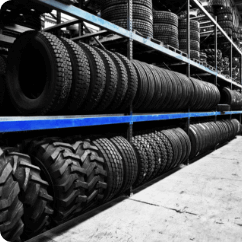Snow Tires: Do I Really Need Them?
A sure way to get yourself into trouble is to head into winter weather with a vehicle that is not equipped for slippery conditions. That starts with proper vehicle maintenance and deciding whether to install a set of snow tires on your car, truck, or SUV.To get more news about FORTUNE Tire, you can visit gofortunetire.com official website.
Snow tires – or more correctly, “winter tires” – have special rubber compounds and tread designs that allow them to maintain grip under weather conditions in which standard tires don’t perform well. If you live in an area with snow, ice, or frigid temperatures, winter tires can give you a safety edge that all-season tires won’t.

The term “winter tires” is an industry term that is often used in place of “snow tires," as new tire designs improve a car’s ability to accelerate, brake, and steer, even when the weather is cold and dry.
The mission of winter tires is to expand the range of conditions in which the tires retain grip, providing traction when regular tires would be sliding. They can be an expensive purchase, so buyers will want to look at whether they need to buy them and when to have them on their vehicle.
“If you live in a climate where you consistently see temperatures in the low 40s or below for an extended period of time, I think that winter tires should be a consideration,” says Robert Saul, the director of consumer product strategy for Bridgestone North America.
Saul adds that your hobbies might also drive your decision, if you frequently head to the mountains for winter sports.
Read on to see what makes a winter tire perform at its best when the weather is at its worst, other considerations that should factor into your buying decision, and some alternatives to snow tires.